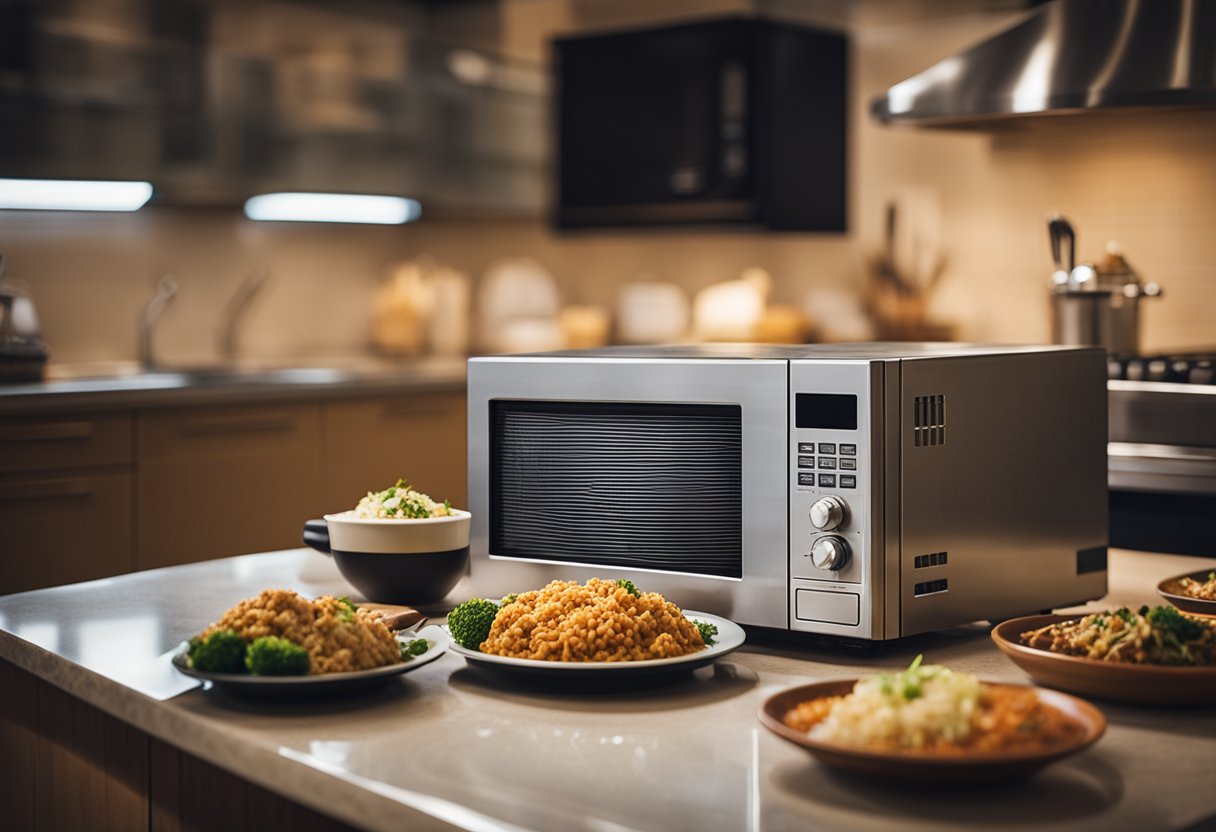I love using curry powder in my cooking, but sometimes I run out of it or want to switch things up. That’s why I’ve done some research on substitutes for curry powder.
Whether you’re out of curry powder or want to try something new, there are plenty of options to choose from.
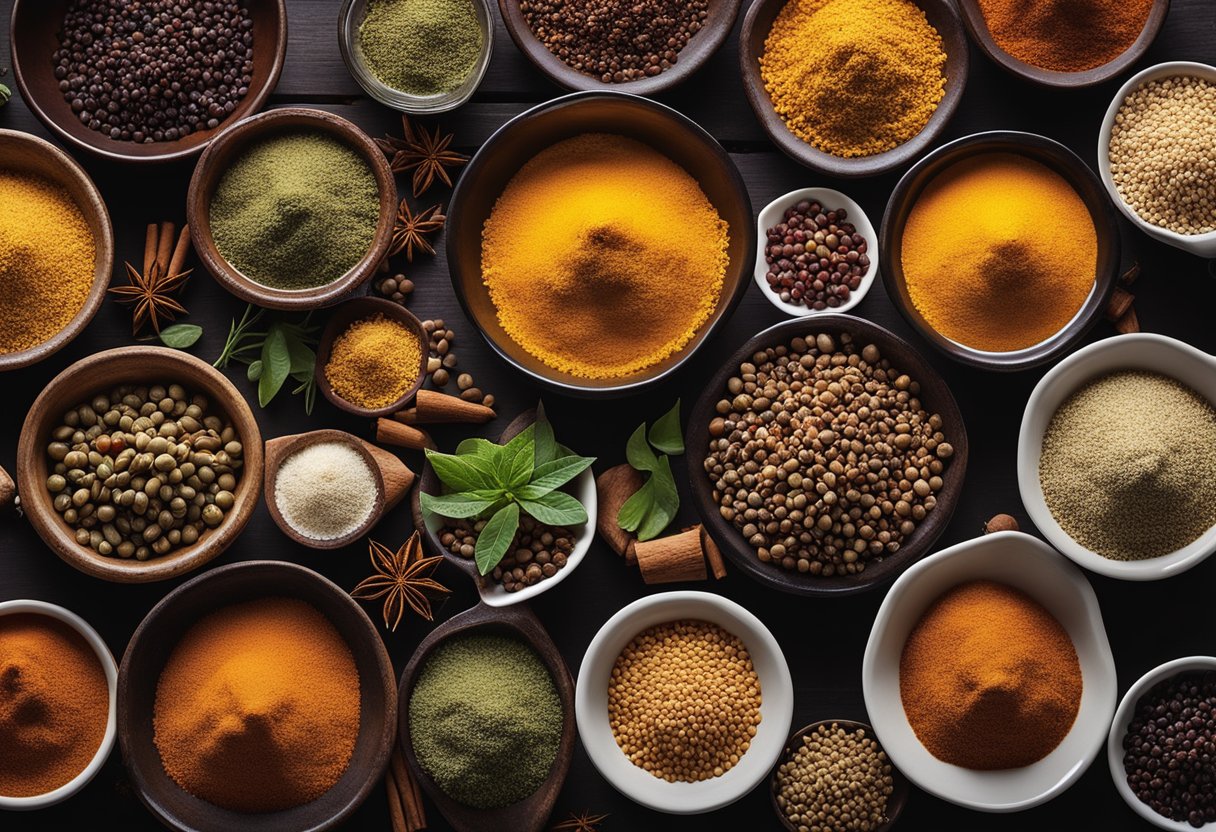
Understanding curry powder is important when looking for substitutes. Curry powder is a blend of spices commonly used in Indian cuisine.
The exact blend of spices can vary depending on the region and recipe, but it usually includes turmeric, cumin, coriander, and other spices.
It has a warm, earthy flavor with a hint of sweetness and can be used to season meat, vegetables, and rice dishes.
Key Takeaways
- Curry powder is a blend of spices commonly used in Indian cuisine.
- Substitutes for curry powder include spice blends like garam masala and sambar powder, as well as individual spices like turmeric, cumin, and coriander.
- When choosing a substitute, consider the flavor profile of the dish and adjust the amount of spice accordingly.
Understanding Curry Powder
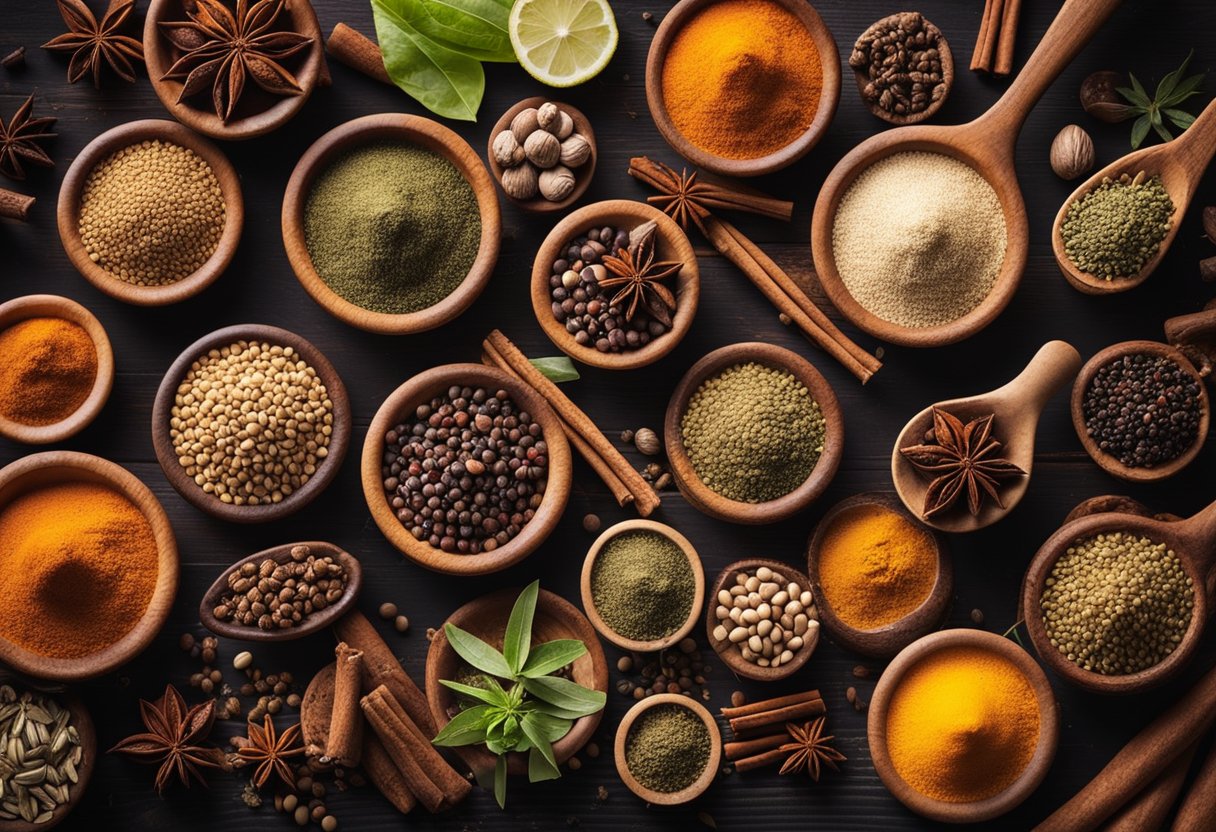
Origin and Composition
Curry powder is a spice blend that is commonly used in Indian cuisine. It is believed to have originated in India, where it was used to add flavor and depth to a variety of dishes.
The spice blend typically consists of a combination of cumin, coriander, turmeric, ginger, chili, fenugreek, cinnamon, mustard seeds, cardamom, nutmeg, black pepper, and curry leaves.
While curry powder is often associated with authentic Indian cuisine, it is important to note that the spice blend as we know it today is actually an English invention.
The English created the blend to mimic the flavors of Indian cuisine and make it more accessible to their palates.
Flavor Profile
Curry powder has a warm, earthy flavor with a slightly sweet and spicy kick. The blend of spices gives it a vibrant yellow color that is characteristic of many Indian dishes.
The aroma of curry powder is also quite distinctive and can add depth to any dish it is used in.
Madras curry powder, a spicier version of the blend, is a popular variation that is often used in Indian cuisine. It is typically hotter than other types of curry powder and can be used to add a bold and intense flavor to dishes.
In summary, curry powder is a versatile spice blend that adds a unique flavor and vibrant color to a variety of dishes. While it is not an authentic Indian spice blend, it has become a staple in many kitchens around the world.
Common Uses of Curry Powder
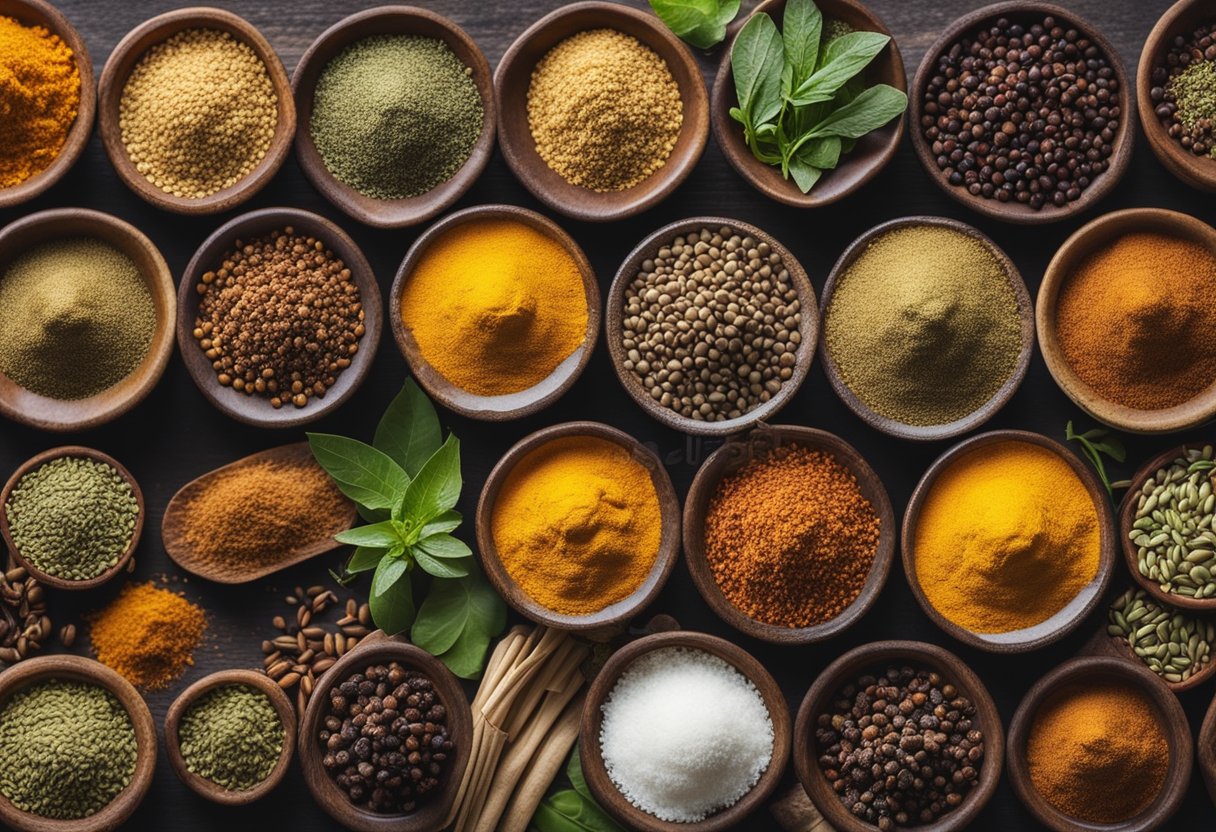
As someone who loves to cook Indian food, I always make sure to have a jar of curry powder in my pantry.
Curry powder is a blend of spices that is commonly used in Indian dishes, and it adds a unique flavor and aroma to any dish. Here are some common uses of curry powder:
- Curries: Curry powder is the main ingredient in Indian curries. Whether you’re making a vegetarian curry with chickpeas and spinach or a meat-based curry with chicken or lamb, curry powder is an essential spice blend that adds depth and complexity to the dish.
- Soups and stews: Curry powder is a great addition to soups and stews. It can be used to flavor lentil soup, vegetable soup, or even beef stew. Just a teaspoon or two can make a big difference in the flavor of the dish.
- Marinades: Curry powder can be used as a base for marinades. Mix it with yogurt, lemon juice, and garlic to make a marinade for chicken or fish. The spices in the curry powder will infuse the meat with flavor and make it more tender.
- Roasted vegetables: Curry powder can be used to season roasted vegetables. Toss some cauliflower, sweet potatoes, or carrots with a little olive oil and curry powder, and roast them in the oven for a delicious side dish.
- Tea: In some parts of the world, curry powder is used to make a spicy tea. Just add a teaspoon of curry powder to a cup of hot water, and let it steep for a few minutes. It’s a unique and flavorful way to enjoy the spices in curry powder.
Overall, curry powder is a versatile spice blend that can be used in a variety of dishes. Whether you’re cooking Indian food or just looking to add some flavor to your meals, curry powder is a great spice to have on hand.
Homemade Curry Powder
Making your own curry powder is not only easy but also allows you to customize the blend to your liking. Whether you want an authentic Indian cuisine flavor or a milder taste, homemade curry powder is the way to go.
Ingredients and Preparation
The basic ingredients for homemade curry powder are cumin, coriander, turmeric, ginger, and chili. However, you can add other spices such as fenugreek, cinnamon, mustard seeds, cardamom, nutmeg, and black pepper for a more complex flavor.
To make the spice blend, toast the spices in a dry pan until fragrant, and then grind them into a fine powder using a spice grinder or mortar and pestle.
You can adjust the ratio of the spices to your preference and store the homemade curry powder in an airtight container for up to six months.
Here is a basic recipe for homemade curry powder:
| Ingredient | Amount |
|---|---|
| Cumin | 2 tablespoons |
| Coriander | 2 tablespoons |
| Turmeric | 2 tablespoons |
| Ginger | 1 tablespoon |
| Chili powder | 1 tablespoon |
- Toast the cumin, coriander, turmeric, ginger, and chili powder in a dry pan over medium heat for 2-3 minutes, stirring constantly.
- Let the spices cool completely and then grind them into a fine powder using a spice grinder or mortar and pestle.
- Store the homemade curry powder in an airtight container in a cool, dry place for up to six months.
Storage and Shelf Life
Homemade curry powder should be stored in an airtight container in a cool, dry place away from direct sunlight. It can last up to six months, but for the best flavor, use it within three months.
It’s important to note that homemade curry powder may not have the same consistency as store-bought curry powder, as the texture and color may vary depending on the spices used and the grinding method.
However, it will have a fresher and more vibrant flavor that can enhance the taste of any dish.
Making your own homemade curry powder is a great way to add depth and complexity to your pantry and spice rack.
With just a few basic ingredients and simple steps, you can create a spice blend that’s perfect for any curry dish or even as a seasoning for vegetables and meats.
Substitutes for Curry Powder
When you’re in the middle of cooking a dish that requires curry powder, it can be frustrating to realize you’re out of it. But don’t worry, there are plenty of substitutes for curry powder that you can use instead. Here are some of the best options:
Garam Masala
Garam masala is a spice blend that’s commonly used in Indian cuisine. It’s made up of a variety of spices, including cinnamon, black pepper, cardamom, nutmeg, and cloves.
While it has a different flavor profile than curry powder, it can be used as a substitute in many dishes.
Curry Paste
If you have curry paste on hand, you can use it as a substitute for curry powder. Keep in mind that curry paste is more concentrated than curry powder, so you’ll need to use less of it.
You can also dilute it with some coconut milk or water to get the right consistency.
Chaat and Sambar Masala
Chaat masala and sambar masala are spice blends that are commonly used in Indian dishes. They have a different flavor profile than curry powder, but they can be used as a substitute in some recipes.
Tandoori Masala
Tandoori masala is a spice blend that’s commonly used in Indian cuisine. It’s made up of a variety of spices, including cumin, coriander, turmeric, and ginger.
While it has a different flavor profile than curry powder, it can be used as a substitute in some dishes.
Chinese 5 Spice
Chinese 5 spice is a spice blend that’s commonly used in Chinese cuisine. It’s made up of a variety of spices, including cinnamon, fennel seeds, cloves, star anise, and Szechuan peppercorns.
While it has a different flavor profile than curry powder, it can be used as a substitute in some dishes.
Allspice and Other Individual Spices
If you don’t have any spice blends on hand, you can use individual spices as a substitute for curry powder.
Some good options include cumin, coriander, turmeric, ginger, chili powder, fenugreek, cinnamon, mustard seeds, cardamom, nutmeg, black pepper, cloves, garlic, onion powder, garlic powder, cumin powder, paprika, and red pepper flakes.
Curry Roux
If you’re making Japanese curry, you can use curry roux as a substitute for curry powder. Curry roux is a mixture of flour, oil, and spices, and it’s used to thicken and flavor the curry.
If you don’t have any curry roux on hand, you can make your own by heating some vegetable oil in a pan, adding garlic paste and red chilis, and then adding flour and spices.
Other Substitutions
If you don’t have any of the above substitutes on hand, you can try using a combination of spices that you do have. For example, you can try using a blend of cumin, coriander, turmeric, and ginger.
You can also experiment with adding other ingredients, like nutmeg, allspice, cinnamon, or chili powder, to your spice blend. Just keep in mind that the flavor profile may be different than if you were using curry powder.
Considerations When Choosing a Substitute
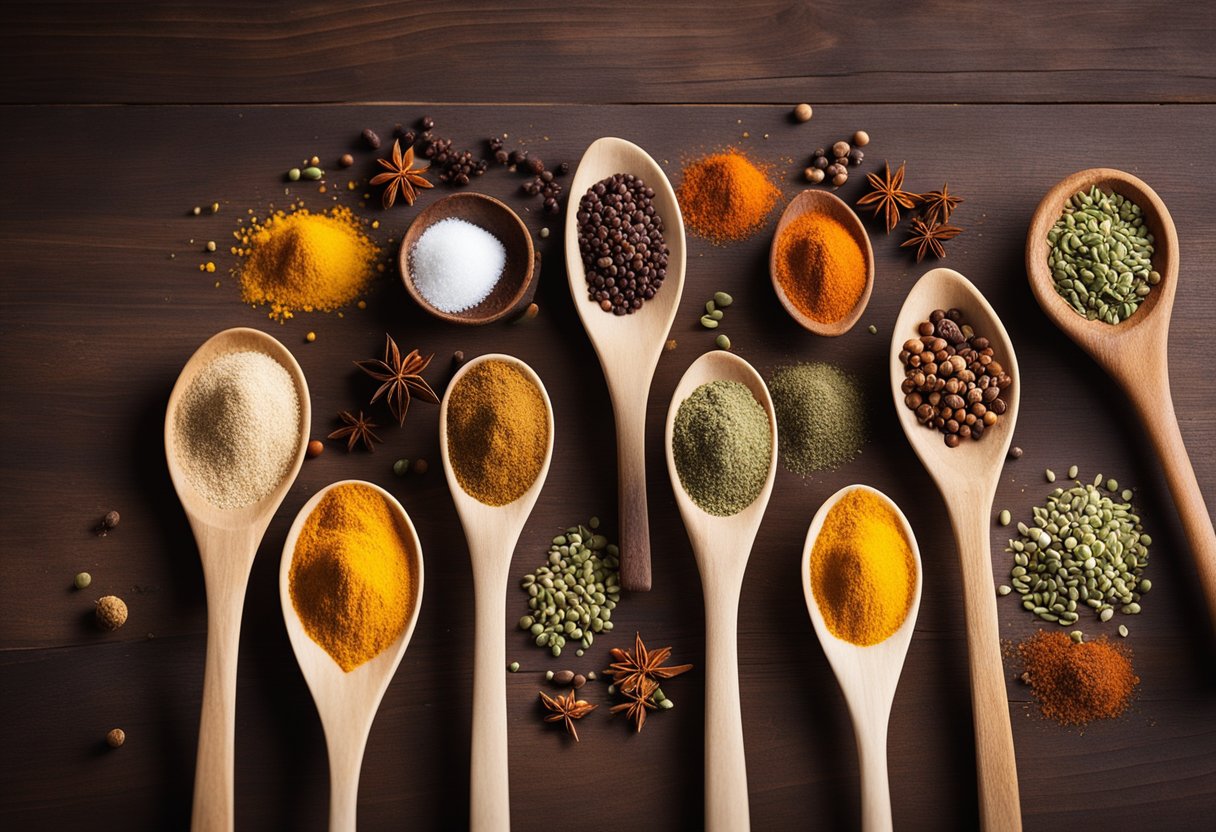
When choosing a substitute for curry powder, there are several factors to consider. The flavor and aroma of the substitute should be similar to curry powder, with a warm and earthy flavor and depth.
Some substitutes may have a slightly sweet taste, while others may be spicier. The color of the substitute should also be taken into account, as curry powder is known for its vibrant yellow color.
It is important to note that each substitute will bring its own unique flavor to the dish, so it is important to choose a substitute that complements the other ingredients in the recipe.
For example, garam masala is a great substitute for curry powder in Indian dishes, but may not work as well in other types of cuisine.
When cooking with a substitute for curry powder, it is best to start with a small amount, such as a teaspoon, and adjust to taste. Some substitutes may be more concentrated than curry powder, so it is important to use them sparingly.
If you are unable to find a suitable substitute at your local grocery store, consider making your own curry powder using whole spices. This will allow you to customize the flavor and ensure that it is fresh and flavorful.
In addition to its culinary uses, curry powder also has several health benefits. Many of the spices used in curry powder, such as turmeric and cumin, have anti-inflammatory properties and may help lower cholesterol levels.
However, it is important to note that these health benefits may not be present in all curry powder substitutes.
Frequently Asked Questions
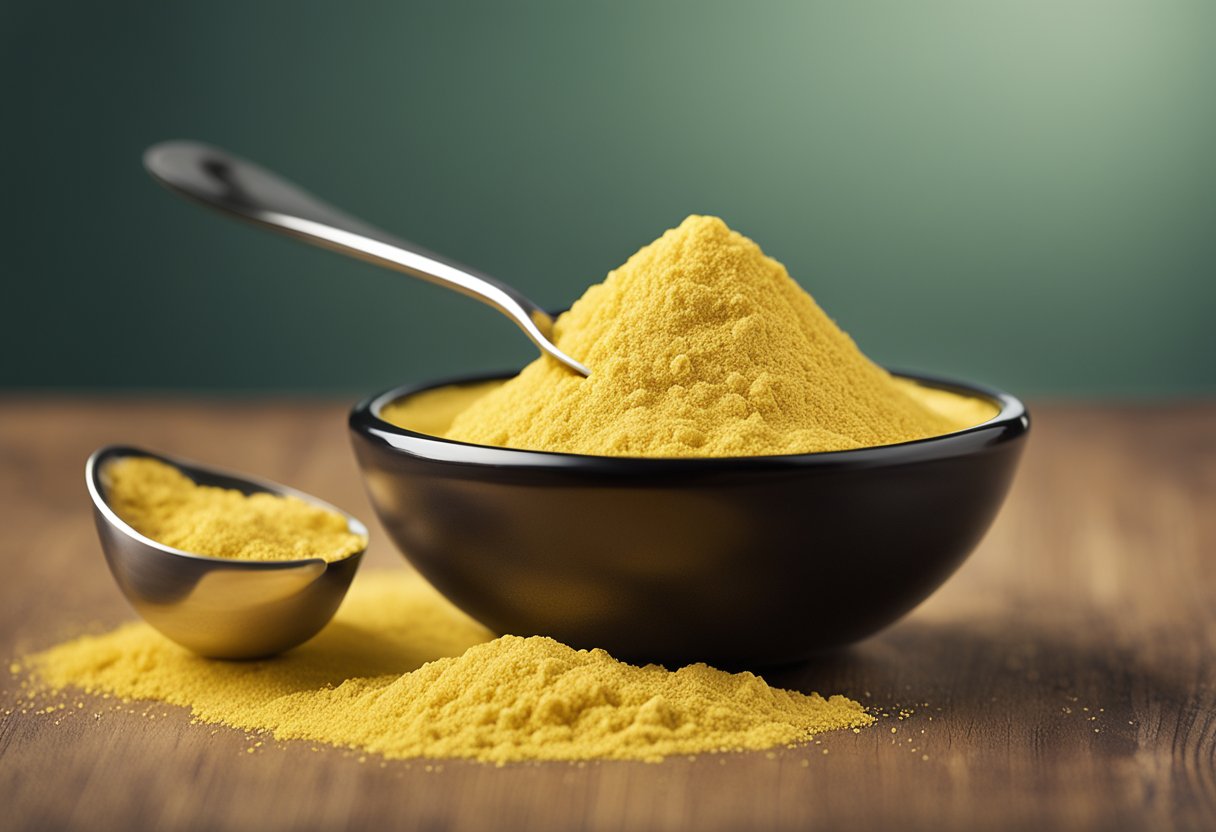
What are some mild alternatives to curry powder?
If you’re looking for a milder alternative to curry powder, try using a blend of cumin, coriander, and turmeric. These spices are commonly used in Indian cooking and can provide a similar flavor profile to curry powder without the heat.
What spices can be used as a substitute for curry powder?
There are many spices that can be used as a substitute for curry powder, including garam masala, cumin, coriander, turmeric, and paprika. Each spice has its own unique flavor profile, so experiment to find the one that best suits your dish.
Can I use paprika in place of curry powder?
While paprika can be used as a substitute for curry powder, it will not provide the same depth of flavor. Paprika is a mild spice that is often used for color and flavor in dishes, whereas curry powder contains a blend of spices that are specifically chosen for their flavor profile.
What is the difference between curry powder and garam masala?
Curry powder and garam masala are both spice blends that are commonly used in Indian cooking, but they have different flavor profiles.
Curry powder typically contains a blend of spices such as cumin, coriander, turmeric, and chili powder, while garam masala contains spices such as cinnamon, cardamom, and cloves.
Garam masala is often used as a finishing spice, while curry powder is used throughout the cooking process.
Is turmeric the only spice in curry powder?
No, turmeric is not the only spice in curry powder. Curry powder is typically a blend of spices that can include cumin, coriander, turmeric, chili powder, and other spices depending on the recipe.
What are some common ingredients in Indian curry powder?
Common ingredients in Indian curry powder include cumin, coriander, turmeric, chili powder, ginger, and garlic. These spices are often combined with other ingredients such as coconut milk, tomatoes, and onions to create a flavorful curry dish.




